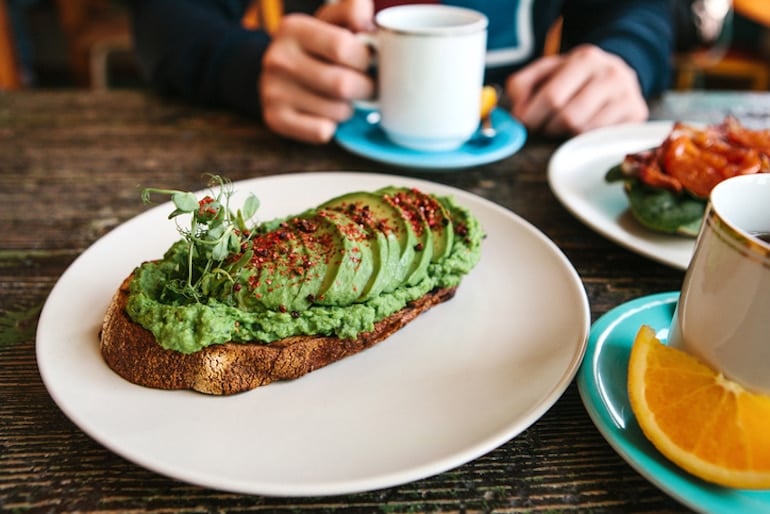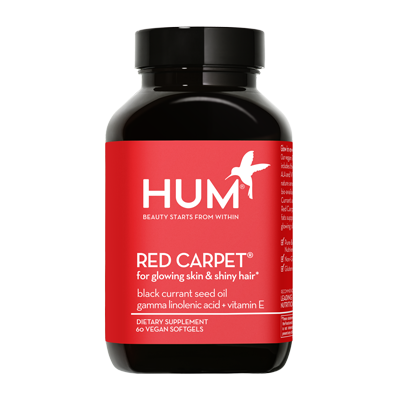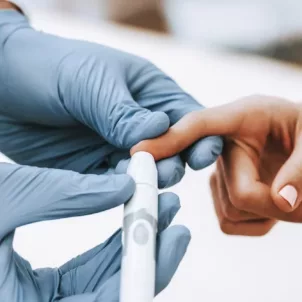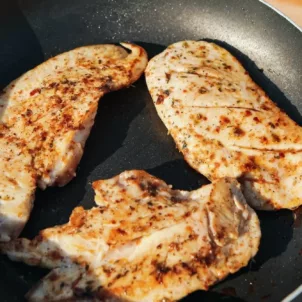Registered dietitian Jessica Bippen, MS, RD explains once and for all why eating healthy fat won’t make you gain weight. Read on to learn why your body needs fat, the different types of healthy fats, and one unhealthy type of fat you should avoid.
It’s time to bust this myth once and for all: Eating fat doesn’t make you gain weight. Yes, you heard that right. Dietary fat doesn’t make you gain weight!
This outdated idea started in the 1960-70s, then became the craze of the 1990s when low-fat foods were worshiped. From low-fat ice cream and crackers to low-fat peanut butter, these foods shaped the way people ate and thought about food for years to come.
While more people are embracing healthy fats in their diet, for some there’s still fear and confusion around this essential macronutrient.



Why your body needs healthy fats
Fats are one of the essential macronutrients along with carbohydrates and protein. You need a certain amount of each of these macronutrients daily in order for your body to function optimally. Again, your body needs fat. Fat is your friend! It helps promote cell growth, hormone production, and protects your vital organs. Here are four more important benefits of dietary fat:Energy
Dietary fat contains nine calories per gram, making it more calorie-dense than protein and carbs. However, it’s not a bad thing! Fat provides your body with energy without spiking insulin production.Metabolism
Contrary to the common belief that fat makes you fat, it’s actually the opposite! The truth is that eating healthy fat can help you burn fat by boosting your metabolism and helping break down stored fat.Satiation
Healthy fats also keep you feeling satisfied. Why? They take more time to digest than carbohydrates. This increases your satiety and keeps you feeling fuller for longer. Think about eating a bag of pretzels versus a handful of nuts. The pretzels will leave you hungry an hour later, while the nuts hold you over. In addition, fats also make food taste better.vitamin absorption
Another main role of dietary fat is to help your body absorb fat-soluble vitamins A, D, E and K. For instance, a big bowl of salad greens is full of vitamin K. However, in order to absorb the vitamin K, you need to include a healthy fat like avocado, nuts, seeds, or an oil-based salad dressing.The science behind weight and healthy fats
We can’t talk about healthy fats without their connection to weight. Despite all the popular low-fat diets—and on the other extreme, the high-fat diets like keto—you need roughly 30 percent of your calories to come from healthy fats to promote health. In regards to weight loss, there’s still much debate over what diet is best for weight loss. This is because laboratory studies cannot account for many of the internal and external factors that determine weight. However, there’s more compelling research showing that high-fat Mediterranean-style diets lead to a greater reduction in body weight and abdominal fat compared to traditional diets. Still, most people don’t weight because they eat too much healthy fat. The problem occurs when you have too much of any kind of energy, meaning you’re over-consuming calories. The same is true when you eat too much fat coupled with sugars and processed carbs. It’s not the fat itself that causes weight gain but rather the combination of fat and sugar in ultra-processed foods that influences your metabolism in a negative way.
Types of Healthy Fats
With all this talk about fat, it’s important to mention that not all fats are created equal. The type of fat you eat matters. When choosing healthy fats, it’s best to focus on monounsaturated fats and polyunsaturated fats (especially omega-3s) from whole-food sources.Healthy Sources of Monounsaturated Fat
- Olives
- Olive oil
- Avocado
- Nuts
- Seeds
Healthy Sources of Polyunsaturated Fat
- Fatty fish (tuna and salmon)
- Walnuts
- Flax seeds
- Chia seeds
- Hemp seeds
Are Saturated Fats healthy?
Saturated fats, like those in coconut oil and butter, are a little more difficult to address. Research previously linked saturated fats to an increased risk of heart disease and stroke. However, newer research shows that this finding may not be as accurate as we once thought. Many of the studies on saturated fat often look at people eating as part of an unhealthy diet full of refined carbohydrates and sugar while lacking veggies and fiber. In general, this eating style is linked to poor health outcomes, thus making the research inconclusive. When choosing saturated fats, moderation is key! Adding coconut oil or grass-fed butter to a sauté pan can be part of a healthy low-sugar, whole-food diet—but it’s best to not overdo it.you should Avoid trans fats
Finally, there are trans fats. These manufactured fats are made by adding hydrogen to liquid vegetable oils to make them more shelf-stable. It’s best to avoid these fats at all costs. They do nothing for your health, and research shows they’re highly inflammatory and linked to numerous health conditions.The Bottom Line
You don’t need to fear fat! Eating healthy fats doesn’t lead to weight gain. But that doesn’t mean you have to go to the other extreme and adopt the keto diet. A moderate amount of healthy fats are needed for your body to function optimally. They’ll also help you absorb the fat-soluble vitamins, help keep you satisfied, and burn more fat in your body! So next time you’re making a quick meal or snack, make sure you’re adding a little healthy fat. Simple examples include adding an oil-based dressing to a salad and sprinkling hemp seeds on a quinoa bowl. You can also reach for mini-meal faves such as coconut yogurt and blueberries or smashed avocado on toast.More like this









